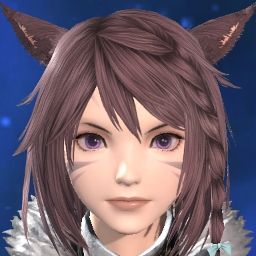It's unfortunate that the devs appear to treat it as a major feedback source. The downvote system makes it terrible for getting a breadth of opinions, because what is being upvoted or downvoted is less so reflective of the general userbase, but more so down to who is likely to be active at a given time, plus mass downvoting. All it does is form a hivemind that suppresses dissenting views. SE should put more effort into their own forum rather than relying on Twitter or Reddit, as well as player surveys, but I can understand why the option may seem easier and cost-efficient.
Definitely agree. And then if you do look closely at the story, and start scrutinising the plot holes in it, that too is met with consternation. Whatever you do, you will displease the more rabid fans.
Anyway, I will come back to post my full impressions of it at some point in the future, after we have seen some of Pandaemonium and in anticipation of some other stuff coming. As you say, it is on the writer to make sure the story is clear, and I believe they even took an extra 2 weeks to make sure the story was clear, so I can’t imagine what it was like before. Unfortunately, they often add further contextual info in interviews and the short stories, and there are also usually differences between localisations/the JP version, and the EN version. All quite a bit of work to put in, so I get why people don’t want to/don’t have the time to – the last of those I don’t really consider good practice, but it is what it is. I’d say SB was more consistent across the board, whereas this was a rollercoaster of highs and lows.
In all honesty, I’m on the fence about it, and it’s a shame there’s a lack of decent competitor MMOs to my tastes at the moment to take flight to... Spoiler tags to keep the post neat…
For now, I’ll say my main issue with it was the time travel plot device and their portrayal of Venat. The two connect closely together, because I think without the timeskip, her actions make little sense. As it is, she comes across as someone with a saviour/god complex coupled with Munchausen by proxy. The main reason that she didn’t tell any of the other ancients about what she saw is less that she wouldn’t be able to convince them – there were plenty of ways and opportunities for that. It’s that she didn’t want to alter the timeline, but it’s hard to believe she wouldn't end up doing that anyway. For some reason she thought this was all her Big Plan, but in reality, she was not the one who sent the WoL back; Elidibus was. She also did not conceive of that plan, conversation with the Scions and G’raha who had just happened to preserve him the tower did. I very much doubt she could’ve anticipated any of the events of the 8UC or the invention of time travel to be used in that way. Granted, she was acting on the knowledge was given by you, but even so, it’s a strange leap of logic to me when she tries to scrutinise her future self’s motives… and if they want to involve time paradoxes here, it’s not helping the case.
Besides the obvious inconsistencies with the 8UC timeline, it’s all handwaved with throwing the phrase “conjunction of timelines” at you enough times. I don’t care for her reasoning much, and them showing her approaching her people as their star was dying, to give them high handed lectures, shows me she didn’t even have as much insight as the twins were able to acquire through their time in Garlemald. By the point you leave her in Elpis, it’s also not very plausible that Hermes was going to be much use in the Convocation, if his discovery was not exposed. If she did not reveal the knowledge she had, her people had little reason to be swayed by her, and I have absolutely no doubt if she had approached the sundered in similar circumstances, they’d fob her off, too. All of this only makes sense through the desire to preserve a timeline she wanted to not alter but already had. So I am left thinking that maybe the original sundering was accidental or without a good justification, and the idea was to imbue it with new meaning once Venat understood what had happened. Y’shtola mentions something about giving her actions a brighter meaning even if they were neither kind nor just. In the end, I get why the developers did it – they would need to address huge changes in the world if she had done it, but it still comes across as tacked on and needlessly complex, no doubt because of their rush to tie matters up by the end of 6.0. I’m just sad that there wasn’t an option to say “thanks for the hostage ride, now good riddance” to her at the end. As someone who prefers the ancients, it’s just unsatisfactory and not very convincing. She left a sour taste in my mouth, and initially I went in liking her. Real culprit is the plot device, but the way it’s written they go hand in hand. What I think they were angling for was how to get a happy ending for all concerned (Ascians/ancients, Venat, Scions) in the least amount of time, thus the Elpis scene and the plot point about memory recovering from Kairos manipulation upon return to the Aetherial Sea, but it doesn't change my sentiment towards it. This poster has captured a lot of the problems I have with the story.
The way they had left it by SHB, I had hoped that what they would angle for is a third way forward to resolve the now ancient dispute between her faction and the Convocation (bearing in mind her original beliefs as to why Hydaelyn had to be summoned may have differed as her guy on the moon mentions they did not know the true cause either), and touch on Azem’s role in it all. I’d have liked to see that approach pursued instead, where it all amounted to a tragic misunderstanding, perhaps pushed by a third party agent like Hermes, in collaboration with a being like Jenova (there is some precedent in this setting for such beings via the High Seraph in the Ivalice quest lines), but perhaps originating from outside the star. I wasn’t too unhappy with Meteion being this madman’s creation gone mad, even if I find her obnoxious, but throw in the time travel, and dynamis, in an expansion that was already dragging with a lot of filler but still had to smoosh in loads of plot elements, and it was a mess, that some people are understandably confused by. It’s getting to the point that the lore feel similarly unsatisfying to me as it did in WoW. In any case, what’s done is done, and I’m just hoping the story takes a different turn in the future.
With the main issue out the way, the highlights for me were: Sharlayan and the city’s architecture, Garlemald (and the radio music) and highlighting the plight of the Garleans and their reasons for their deep distrust of their neighbours (Jullus and Quintus being stand outs, highlighting why they as a people revered Solus and Varis), Anima, Thavnair/Radz-at-Han, Mare Lamentorum and the chanting music (not so much the Loporrit stuff), the beautiful design and music of Aitiascope and Ktisis Hyperboreia, Ultima Thule as a zone on the whole plus learning of the fate of other stars, Zodiark/Hydaelyn fights (both felt a bit underwhelming but they were visually impressive; it was nice to finally gaze upon Zodiark’s chiselled form), Elpis as probably my fave zone after Ultima Thule plus getting to see more of Emet-Selch (learning more of him, why the unsundered struggled to see the sundered as alive in the same sense as they were, even though Y'shtola hints at a slight perspective shift in Emet, and that he even took up the role of Azem in addition to his own seat as an Ascian, plus the fact that he did not renounce his principles but entrusted his legacy and honoured his side of the deal)/Hyth (they made him quite the charmer), Elidibus (one of my fave characters in the game) and more of the ancients in general, and several of the character interactions with Y’shtola (probably the one Scion I ended up liking best), Estinien and Thancred, and to a lesser degree, Urianger.
Fandaniel as Amon was done well as an antagonist, IMO. The Zenos fight was handled about as well as they could. His main use was to fit into the philosophical themes they were exploring along with Fandaniel and yes play his "mirror" role; some of those themes were interesting, even if I did not agree with where they took them. Learning more of the ancients, who came across a lot like VII's, but more fleshed out - I thought they had a rather awesome outlook for such long-lived and potent beings, steering their creation powers for the star's benefit. I don't usually like hippy trippy planet worshipping tropes, but in this case it was done really well I felt - they really did act as custodians of the star while also having a very advanced civilisation centered around debate and enquiry. One other thing: they made clever use of the name "Sea of Stars", as it is the name of the Aetherial Sea in some other versions, and it allowed for it to be surreptitiously introduced in the trailer while being a new zone... a literal graveyard of souls and stars.
Lows: I have to admit, I didn’t like the Endsinger fight. By that point there’s too much repetition of the same talking points, too much fake drama and the totally over-the-top scale of it all (collective misery of countless stars), plus plot contrivances to get here, just ended up feeling comical and making it feel like a non-event, and we know we'll go onto fight other stuff in Pandaemonium etc. while she's left in the dust anyway, so meh. Beyond that, Labyrinthos pt2, quest construction in some cases (the quest that just drags on with all the objectives in Labyrinthos), the pacing issues caused by trying to resolve so many plot lines at once while at the same time accompanied by loads of filler, an overdose of attempted emotional baiting for characters I don’t really care about even by the end (subjective, I will grant), fan service for the same, too much meta/self-referential stuff, the non-event of the apocalypse (whether it detracts from the “point” or not), sense of disconnect with the character (yes yes, not my character really but even so I'd have liked more choices in some scenes), the asspulls, inconsistent but repetitious hammering of the same points, the time travel shenanigans, the repeated syropy speeches… the last dungeon and trial set up just felt like a repeat of SHB stylistically… Being told constantly about all the “suffering” the protags go through but really no real risk of death due to plot armour… I could go on. Reminds me of some of the stuff I started disliking about WoW's lore when I took my leave of it, but we'll see what 6.1 onwards entails...
I’d put the expansion just about above SB, but not on the level of SHB. Too many inconsistencies for it and it felt rushed and poorly paced, while trying too hard at various points. Stylistically not my thing, so I might just do my best to pay less mind to the story. I continue to hate time travel and this expansion did little to change it...
I’m not even convinced they couldn’t – being naturally high in aether and unfamiliar with the concept, of course they had not been given the opportunity to. Due to how they’re constituted, I believe it takes very extreme emotional reactions from them to interact with the entelechies, but it’s clearly not impossible, and whatever the situation with LBs, they can use them. They had suppression fields like in Ktisis Hyperboreia, that they could use to suppress their innate powers for a time, and isolate and hone their dynamis. If it’s possible for relatively aether-rich sundered like those of the Source, I don’t see why it wouldn’t be for them. Moreover, they could devise arcane constructs like Meteion for that purpose – she had design flaws that worked against her, as Hades pointed out, but a better conceptualised version need not have.
You also have to wonder how a primal like Zodiark, suffused with so much prayer, might function with regard to that – perhaps they’ll touch on it later. In the end, the entire world’s hopes rest on eight characters (with plot armour for good measure), so I deem it scarcely credible to think the ancients could not devise a way to deal with this… if only they had the knowledge to do so. I think it’s less an attempt to justify the sundering on flimsy pretences, and more that they’re trying to wrap up all those plot elements while committing to the current timeline while satisfying fans of characters with conflicting aims, in a short amount of time, but obviously this approach comes at a cost.
Also strongly agree with that last sentence. Furthermore, the current Final Days had the potential to be even worse because they just outright devour the person’s soul. The sundered only survived this through a metric ton of plot devices, very few of which Hydaelyn herself could ever have predicted, whatever past Venat may have believed. She took a gamble. In the end, Zodiark bought them a lot of time, probably even more at his full power. I also agree with your characterisation of Venat. They had a timeline she didn’t want to change, but she was already changing it – so the plot device is really the only reason we’re given here to make sense of her actions.
The Ascians proved that there was plenty of fight in the ancients – so much so that the three unsundered gave up their bodies and toiled for 12k years to get their world back. Go to the ancients before Zodiark is summoned, or after, when things have settled a bit, and reveal what you know, and you would probably get a rather different reaction… while they desired a form of perfection, it was geared towards the star itself. If they were given a clear understanding of what had happened, they could then consider ways to address it and avoid the fate of other stars. It’s worth remembering not all societies that perished did so because they achieved an ideal state – the dragons lived in what was a blissful society and fell simply because of an invasion... mayhap even the sundered Source will succumb to such an event in the future, when there's naught but scribblings of all these events.
Similar sentiments here. People say it was hinted at with Omega, but he was a soulless construct, so it’s much of a muchness. You can, with hindsight, say it’s down to dynamis as some manner of “soul energy”; you can also say it’s the difference between a construct and a being with a soul. His people had forfeit their bodies and minds to mechanical forms, so they had lost what made them sentient beings, and that is what built him. Really, it’s open to all sorts of retrofitting. I’ve included the sources on LBs. People can dismiss it if they like, and of course the writers can always point to the Sharlayans’ knowledge being incomplete, or aether being just one of two ways to charge up LBs, but it is nonetheless what currently exists on them besides Endsinger's comments.
As you note, 8 scions (plus some plot armour) and a few hobos summoned from across the universe somehow sufficed to fell this beast. It’s laughable to think the “suffering” any of them endured could parallel what these worlds suffered in totality, or what the ancients suffered as their star was devoured, and that therefore the corresponding prayer infused into Zodiark would not have infused him with a mixture of dynamis and aether. As “antithetical” as these two energy sources are, even an aetherically dense soul like the WoL is capable of honing dynamis. So it seems less like they’re equal and opposite, and more that beings accustomed to using one are simply likely to be unaware of the other due to its surreptitious nature… but of course, it was still an ancient who first stumbled on this. Again, we'll see if this ever gets touched on.
-
12-22-2021 08:27 AM #221Player

- Join Date
- Jul 2015
- Location
- Amaurot
- Posts
- 4,449
- Character
- Tristain Archambeau
- World
- Cerberus
- Main Class
- Black Mage Lv 90
(5)Last edited by Lauront; 12-23-2021 at 12:38 AM.
-
12-22-2021 09:47 AM #222Player

- Join Date
- Sep 2013
- Location
- Ul Dah
- Posts
- 113
- Character
- Vox Velius
- World
- Behemoth
- Main Class
- Astrologian Lv 100
Everyone is entitled to their own opinions and I'm not going to sit here and judge you and tell you you're wrong for feeling the way that you do, because you're not wrong. I will, however, say that Endwalker is by far the best expansion I have ever played. Never before have I felt compelled to do every single side quest, and talk to every single NPC during the start of a new expansion. I'm not ashamed to admit that there were a few parts that actually made me tear up. This expansion, to me, is a phenomenal masterpiece... but my tastes are not the same as everyone else's and I can understand where you're coming from.
Edit: I'm a huge Final Fantasy fan outside of FFXIV and have played nearly all the numbered entries. I love when they work in aspects of other Final Fantasies into XIV. To me, this expansion has felt the most like a Final Fantasy as I grew up playing than any of the previous expansions thus far, and I'm not just talking about some of the soundtracks.(4)Last edited by Veliaire; 12-22-2021 at 09:52 AM.
-
12-22-2021 04:44 PM #223Player
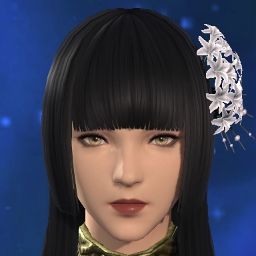
- Join Date
- Jan 2015
- Posts
- 1,677
- Character
- Princess Walk
- World
- Cactuar
- Main Class
- Thaumaturge Lv 100
Endwalker had pacing issues that nearly rivaled ARR IMO. A lot of cutscenes that didn't need to exist or be cutscenes at all, a lot of quest chains that added nothing of value and were clearly put there to pad the msq, etc...
Every time I saw a lopurrit show up on screen I groaned. More than half the time they're on screen is for something incredibly pointless, to bring fetch quests to pad the msq or to have "cute" useless dialogue. They almost make me miss the Churning Mists moogles... Almost.
Also let me say it because it has to be said... Meteion sucked and Kairos was an asspull.(5)Last edited by ReynTime; 12-22-2021 at 04:49 PM.
-
12-22-2021 04:55 PM #224Player

- Join Date
- Jul 2014
- Location
- Limsa
- Posts
- 2,889
- Character
- Areku Foxfire
- World
- Hyperion
- Main Class
- Scholar Lv 90
I liked a lot of moments in endwalker, but it sure did have a lot of filler-was more noticeable than any other expansion for me except ARR itself. And it was also very jarring how little actual gameplay there was. Outside of the quota 5 dungeons and 2 trials, I basically never did anything but watch cutscenes. That was lame.
Good story overall but I don't understand people saying it's amazing or the best story ever told, it was just okay for me. Shadowbringers, Heavensward, and Stormblood back when they were current were more fun and resonated with me more (and they all had actual gameplay), but each their own.(7)
-
12-22-2021 05:24 PM #225Player
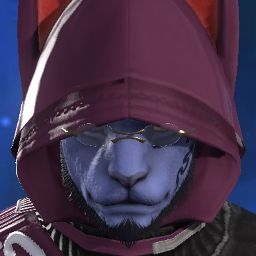
- Join Date
- Oct 2013
- Location
- New Gridania
- Posts
- 5,465
- Character
- Hayk Farsight
- World
- Exodus
- Main Class
- Dark Knight Lv 100
Here's the thing, science does this ALL THE TIME. It builds a hypothesis, it's proven wrong or right. If wrong, it's adjusted, continue until proven right. We learned about Akasa from a researcher, aka a scientist. We learned about Dynamis from a researcher, aka a scientist. We had confirmation of its existence when suddenly things started appearing from nothing, and returned into nothing, something that should not have been possible from what we know about aether. Y'shtola herself noted that there was 0 aether at the spots that the Terminus were at. This confirms the existence of something other than aether powering them, because they wouldn't be able to react with the world otherwise. We then go to the past a while later and find out it's called Dynamis. We've already seen PROOF that it exists because something that shouldn't exist DID exist.
We literally fly to the end of the universe, the Loporrits themselves mentioning that there's nothing there. Meteion appears, messes with our heads, Thancred proceeds to strike at her and we black out. We wake up at the same location, with suddenly things being there when there wasn't before. We have LITERALLY seen impossible things, and you're trying to give an excuse for why it is impossible for LBs to have dynamis in them, despite all this?(2)
-
12-22-2021 05:43 PM #226Player
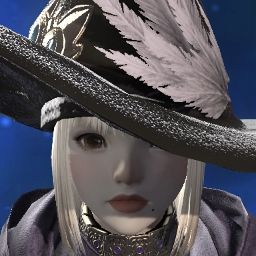
- Join Date
- Jan 2020
- Posts
- 465
- Character
- Sophia Bettencourt
- World
- Sargatanas
- Main Class
- Red Mage Lv 91
Also, they say that accepting the "barbarians" aid is a trap to some degree, taking advantage of the Garleans weakened state, & the eorzeans only motive is to control them after getting their guard down. like extending a hand for aid with the other behind your back holding a knife. basically.
If you're taught something for years and know of nothing else about a people, you will not throw away those ideals just because the "enemy" offers support and aid. There must be some ulterior motive, it just hasn't revealed itself.
When the US military invaded the Japanese islands, some of the villagers (unarmed women and children) upon seeing the foreign enemy soldiers either A: committed suicide by jumping into the sea onto sharp rocks while others hid in fear, Why? Due to propaganda fed to them by their government, even though the soldiers displayed they meant no harm. Fear and hate are powerful driving forces, and the things they used to promote hate is that magic be ebil and primal summoning's are the debil's foosball and the southern nations are primitive barbarians who know nothing else.
It's very reasonable for the Garlean civilians to have their doubts and fears and to act on them. Many of the people you meet are younger, and grew up on that stuff and know nothing else. Racism isn't born, it's taught.
Is the writing top-notch? No but it gets the story across.
its okay to pick apart the things you didnt like, im not disagreeing with anything you said. just adding an explanation as to why didn't the Garleans happily accept you guys with open arms just because the WoL said she/he was nice and there to help.(3)Last edited by juicybug; 12-22-2021 at 05:58 PM.
-
12-22-2021 05:53 PM #227
I feel like the people saying Endwalker's story is dumb and makes no sense are the same people who only pay attention to voiced cutscenes and skip everything else and still think they have a good grasp on the story/lore.
Also, I've seen a lot of bad takes but "Endwalker is the Indiana Jones and the Crystal Skulls of FFXIV" takes the cake for me.(4)Last edited by YukikoKurosawa; 12-22-2021 at 05:56 PM.
-
12-22-2021 05:56 PM #228
At this point, you're just providing meager justifications. "Science does this all the time." Yeah, I remember when electricity was discovered, harnessed, and used in a single decade. That was a wild right, am I right? Hypothesis' by their nature have immense trial and error. However, as with everything in this story, we discover it just in time and understand it just in time and diffuse it just in time and learn to use it just in time against the ultimate incarnation of this element. Just. In. Time.
Are you seeing the problem?
I'll also note that you failed to tackle how multiple worlds failed to have enough hope to live or some other shenanigan that powers Dynamis, but 8 brats and a few stab-happy hobos can kill the manifestation of sorrow with it. Please do not cherry-pick arguments. There's a whole hog and if you touch it, you have to eat the whole thing.
The justification of "impossible things have happened before so they can happen again" doesn't really track when impossibility is... impossible. If impossible things do indeed occur regularly, that is known as either poor writing or a deus ex machina. Which, by now, I admit is becoming something of a regular thing lately in FFXIV. That, however, does not make it good.
And another strawman. Because, obviously, it's impossible that this story has flaws and people don't like it, right? We clearly weren't paying attention? God, you people will just NOT stop with this. FFXIV, and subsequently, Endwalker is not a creation crafted by the actual literal divine. There are problems with it. It infuriates me how the only argument you can muster is "haha u ppl just not pay attention". Like, really? Your best argument is just making up ghosts about the other side? How compelling.
At least be like Hayk. While I clearly don't agree at all with his notions, he's clearly attempting to explain why this works in his perspective. There's an exchange of ideas, even if we may not like the ideas or judgments the other has made. You simply waltzed in here, said that everyone who doesn't like what you like is stupid, then walked out.(6)Last edited by BrokentoothMarch; 12-22-2021 at 06:10 PM.
-
12-22-2021 07:09 PM #229Player

- Join Date
- Jul 2015
- Location
- Amaurot
- Posts
- 4,449
- Character
- Tristain Archambeau
- World
- Cerberus
- Main Class
- Black Mage Lv 90
Hmmm no... I think for example the poster here was making some very good points and he certainly paid a lot of attention to the story...
(6)When the game's story becomes self-aware:

-
12-22-2021 07:15 PM #230Player

- Join Date
- Dec 2021
- Posts
- 31
- Character
- Nisamxes Metsaline
- World
- Phoenix
- Main Class
- Machinist Lv 90
"Remember Warrior of Light, you must not interact or change anything in the past". Fast forward a while and we are going around talking and slaughtering everyone and anything we see both on Elpis and in the pandemonium. No repercussions anywhere to be seen.
(7)



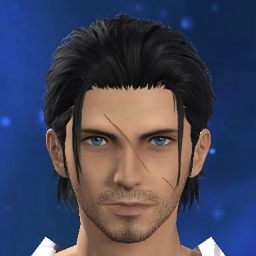


 Reply With Quote
Reply With Quote



